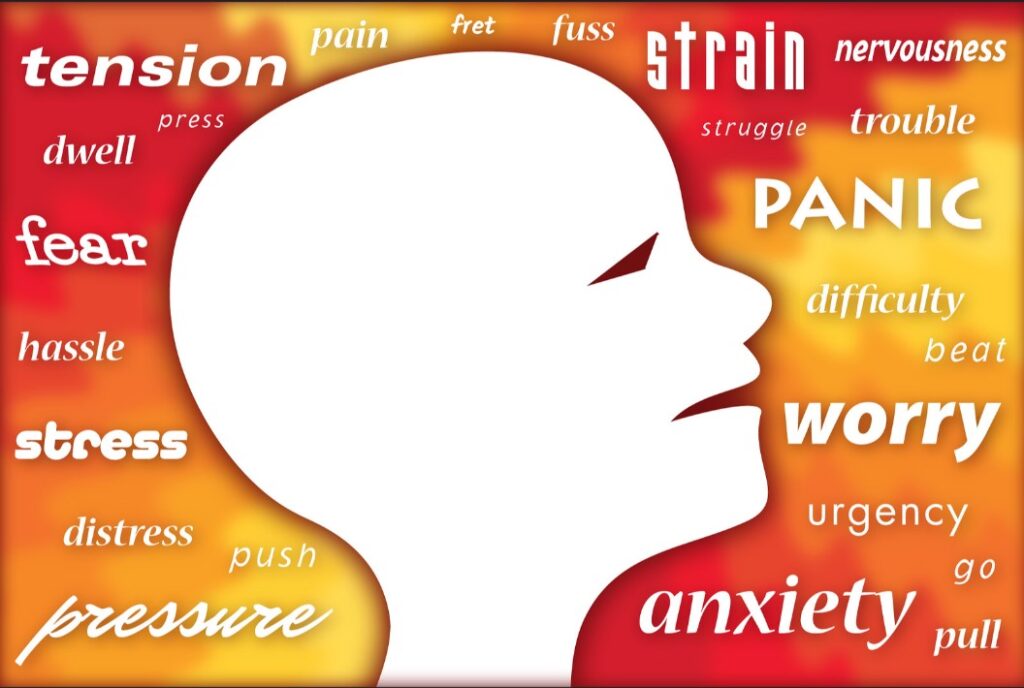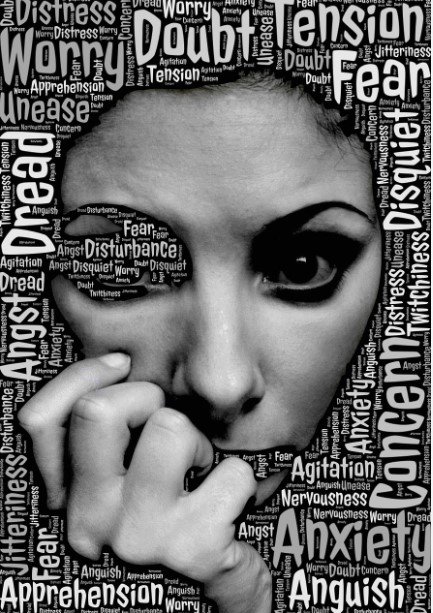They say, “we are what we think” and this is absolutely true. Along with our physical health, our mental health is also important. But, because of a lack of awareness for mental health issues like anxiety and depression, many people tend to ignore them. The emergence of social media platforms and the pressure of living in the digital age, has made young people get exposed to more anxiety than previous generations.
Anxiety is our body’s natural response to stress. It is like a feeling of fear or apprehension about what’s to come. Even though experiencing occasional anxiety is normal, people with anxiety disorders frequently have excessive, intense, and persistent worry and fear about everyday situations. Let us know more about types of anxiety.
Types Of Anxiety Disorder

- Agoraphobia– This is a type of anxiety disorder, where you fear and often avoid situations or places that might cause you to feel embarrassed, trapped, helpless and panic.
- Generalized anxiety disorder- This includes excessive and persistent worry and anxiety about events and activities or even routine, ordinary issues. The feeling of worry is difficult to control and affects how you feel physically.
- Panic disorder- Repeated episodes of sudden feelings of intense anxiety and terror that reach a peak within minutes (panic attacks) is called panic disorder. One can feel shortness of breath, chest pain, or a rapid, fluttering or pounding heart.
- Selective mutism- A consistent inability of children to speak in certain situations, such as school, even when they can speak at home with close family members.
- Separation anxiety disorder- This is a childhood disorder caused by anxiety that’s excessive for the child’s developmental level and related to separation from parents.
- Social phobia- Some people have high levels of fear, anxiety, and avoidance of social situations due to feelings of self-consciousness, embarrassment, and concern about being judged.
- Specific phobias- These are major anxiety, when some people are exposed to a specific object or situation and a desire to avoid it. For example, some people have a phobia of height.
- Substance-induced anxiety disorder- This form of anxiety is characterized by symptoms of panic or intense anxiety which is a direct result of misusing drugs, taking medications, or exposure to a toxic substance or withdrawal from drugs. Also, there are some anxiety disorders due to medical conditions, which includes symptoms of panic or intense anxiety, which is directly caused by a physical health problem.
Causes of anxiety

Causes of anxiety are quite complicated. But, some genetic and environmental factors play a role. Some emotions, events, or experiences may trigger symptoms of anxiety. They are called triggers of anxiety. Knowing about these anxiety triggers will help you to manage your anxiety.
Health issues
An upsetting or difficult health diagnosis, such as cancer or chronic illness, may cause or worsen symptoms of anxiety. Due to its ability to produce immediate and personal feelings, it is a powerful trigger.
Medications
Certain over-the-counter (OTC) medications and prescriptions may trigger anxiety. This happens because active ingredients in these medications may have side effects that cause your body to respond with certain symptoms of anxiety.
Caffeine
To wake up in the morning, many people rely on their morning cup of coffee. But, it can trigger or worsen anxiety. By substituting on non caffeinated options, cutting caffeine intake is possible.
Skipping meals
If you don’t eat on time, your blood sugar may drop, leading to shaky hands and a rumbling tummy. Consuming nutritious food provides energy and also keeps those hands from shaking.
Negative thinking
If you are upset or frustrated, the words you say to yourself can trigger greater feelings of anxiety. If you are saying a lot of negative words when thinking about yourself, you have to learn to refocus your language and feelings.
Financial problems
Having debt or worries about saving money can trigger anxiety. Money fears or unexpected bills are anxiety triggers too.
Social events or parties
Social events that require you to interact with people you don’t know can trigger feelings of anxiety, which could be a sign of social anxiety disorder.
Conflict
Arguments, relationship problems, disagreements can all trigger or worsen anxiety.
Stress
Traffic jams or missing your train are daily stressors, which can trigger symptoms of anxiety. Chronic or long-term stress can even contribute to a person developing an anxiety disorder or worsening symptoms.
Public speaking
Some common triggers of anxiety include public speaking, talking in front of a boss, reading aloud in front of others, and performing in a competition.
Symptoms of Anxiety
- Feeling restless, tense or nervous
- A sense of impending panic, or danger
- An increased heart rate
- Rapid breathing
- Sweating
- Trembling
- Feeling tired or weak
- Difficulty in thinking about anything other than the present worry
- Inability to sleep
- gastrointestinal (GI) problems
- Difficulty controlling worry
- Urge to avoid things that trigger anxiety
Treatment For Anxiety
Psychotherapy and medications are two main treatments for anxiety.
Psychotherapy
This treatment includes working with a therapist to reduce your anxiety symptoms. For treating anxiety disorders, Cognitive behavioural therapy (CBT) is the most effective form of psychotherapy.
Generally, this is a short-term treatment, which teaches you specific skills to improve your symptoms and gradually return to the activities you’ve avoided because of anxiety.
Medications
Depending on the type of anxiety you have, several types of medications are used to help relieve symptoms. For instance, to treat anxiety disorders, certain antidepressants are also used. Your doctor may prescribe other types of medications, such as sedatives, also called benzodiazepines, or beta blockers, in limited circumstances. Such medications are for short-term relief of anxiety symptoms.
Home and lifestyle remedies
Some lifestyle changes can be helpful in treating anxiety.
Stay physically active: Make a routine to remain physically active most days of the week. As exercise is a powerful stress reducer, it can improve your mood and help you stay healthy.
Avoid alcohol consumption: An excessive consumption of alcohol can worsen anxiety. If you are addicted to it or can’t quit on your own, see your doctor or find a support group to help you.
Quit smoking and drinking caffeinated beverages: As both nicotine and caffeine can worsen anxiety, it is better to quit both of them.
Use relaxation and stress management techniques: Meditation, yoga and visualization techniques are examples of relaxation techniques that can ease anxiety.
Prioritize sleep: Focus on getting enough sleep to feel rested. Consult your doctor, if you are not sleeping well.
Healthy diet: Instead of junk foods, prefer healthy diet like fruits, vegetables, whole grains and fish as it can help you in reducing anxiety.
Visit Home Page


1 Comment
This is a very serious issue everyone is suffering from some kind of anxiety or depression